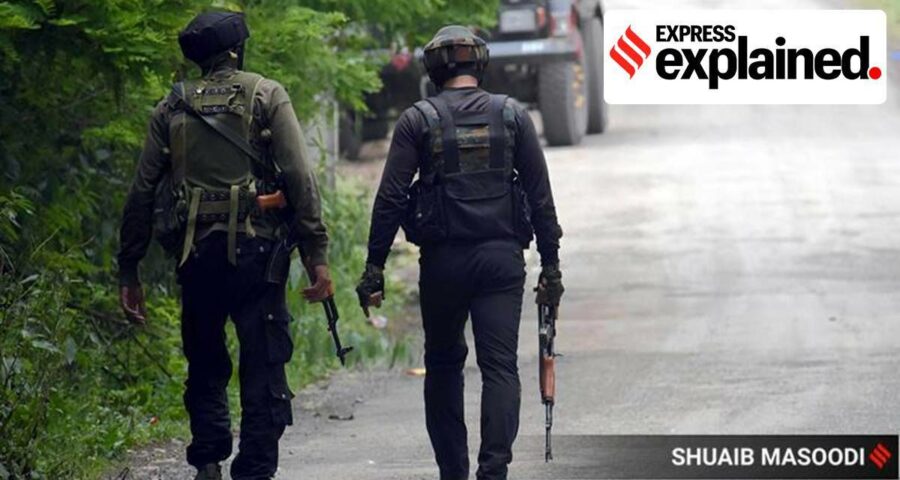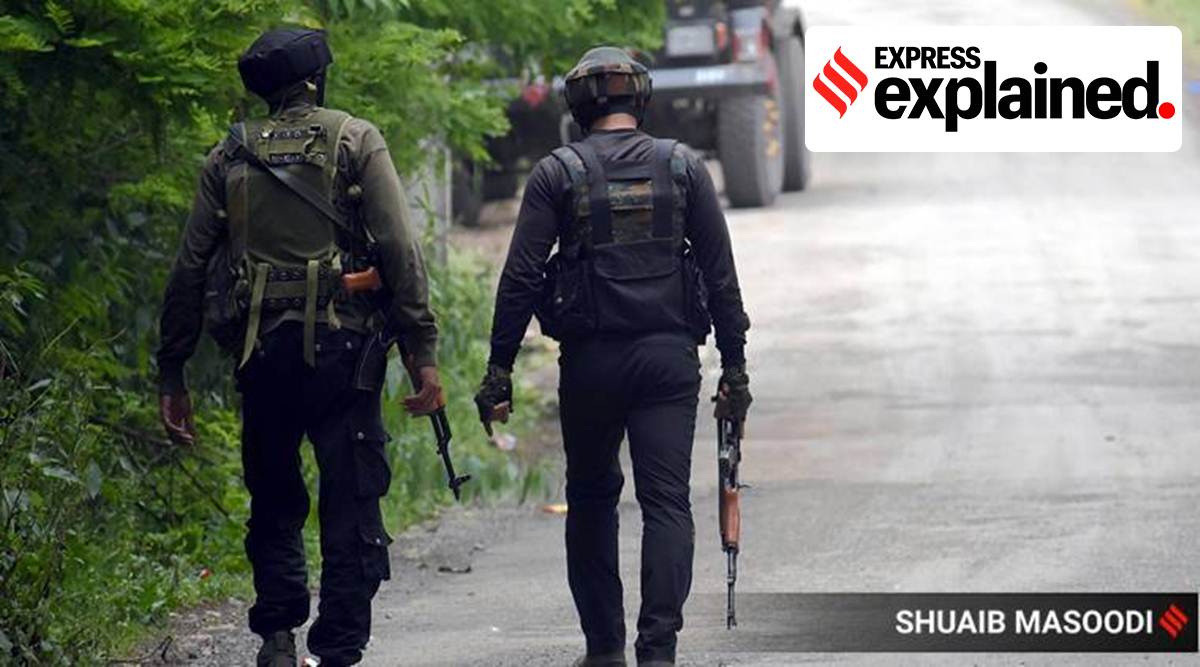Of the 28 civilians killed until October 7 this year, seven were non-Muslims, including two Hindu outsiders and five local Hindus and Sikhs. During the same period in 2020, 37 civilians were killed, and in 2019, as many as 39 civilians.
IN WHAT is being seen by security agencies as a shift in their strategy, militants have in 2021 targeted civilians and, more recently, members of the minority community in Jammu and Kashmir. Almost all civilian killings have been carried out by newly recruited terrorists or those about to join the ranks, using pistols, police said.
Of the 28 civilians killed until October 7 this year, seven were non-Muslims, including two Hindu outsiders and five local Hindus and Sikhs. During the same period in 2020, 37 civilians were killed, and in 2019, as many as 39 civilians.
Police officers attributed this to the “frustration of terrorist handlers” following a destruction of their support structures and effective maintenance of law and order. There is a new challenge, though. “Unlike full-time militants who go missing from their villages or advertise themselves on social media and thus end up figuring on militant lists, these part-timers are largely under the radar and thus difficult to track,” a police officer who did not wish to be named, said.
When contacted, Director General of Police, Jammu & Kashmir, Dilbag Singh, told The Indian Express, nearly all civilian killings this year were carried out using pistols and these “weapons were brought in using drones from across the border”. He also said the majority of civilian killings have been carried out under the banner of The Resistance Front “although the militants involved in the incidents belong to Hizb and Lashkar.”
Kashmir Inspector General of Police Vijay Kumar said, “Due to killing of huge numbers of terrorists of all outfits specially their leadership, terrorist handlers have started targeting unarmed policemen, innocent civilians, politicians and now innocent civilians from minority communities including women.”
According to him, in some cases, Over Ground Workers (OWGs) were also found to be involved. “The police are identifying all such part-time or hybrid terrorists and strict action will be taken against them,” Vijay Kumar said.
An officer in the security establishment said the killings have also coincided with an influx of small firearms in the Kashmir Valley from across the border and increased infiltration since July despite the ceasefire between India and Pakistan holding up. On Thursday, the BSF intercepted a consignment of four pistols and eight magazines at the Jammu border. This has been preceded by several such seizures and drone drops of small firearms.
An officer in the security establishment said the force presence in the Valley is back to pre-August 5, 2019. This reduced presence and an influx of small arms, have made it easy for terrorists to launch attacks on soft targets. “There is a concerted effort from across the border to target non-Muslim residents of Kashmir to communalise the Valley. A part of it is also a reaction to a portal launched by the J&K administration to help Kashmiri Pandits lodge complaints about forced sale of property during the peak of militancy in the Valley,” the officer, who did not wish to be named, said.
Of the 28 civilians killed, the highest – nine – are in Srinagar. Awantipora has the second highest at five, and Anantnag and Sopore districts reported four civilians each.
“After August 2019, there was a looming fear of locals losing sole rights over jobs and land… Over a dozen local BJP leaders have also been killed. But the recent attacks seem to have been carried out to send a message that Pandits and outsiders are not welcome and that this a fight for the rights of local residents,” said another security establishment officer.
Source: Read Full Article


